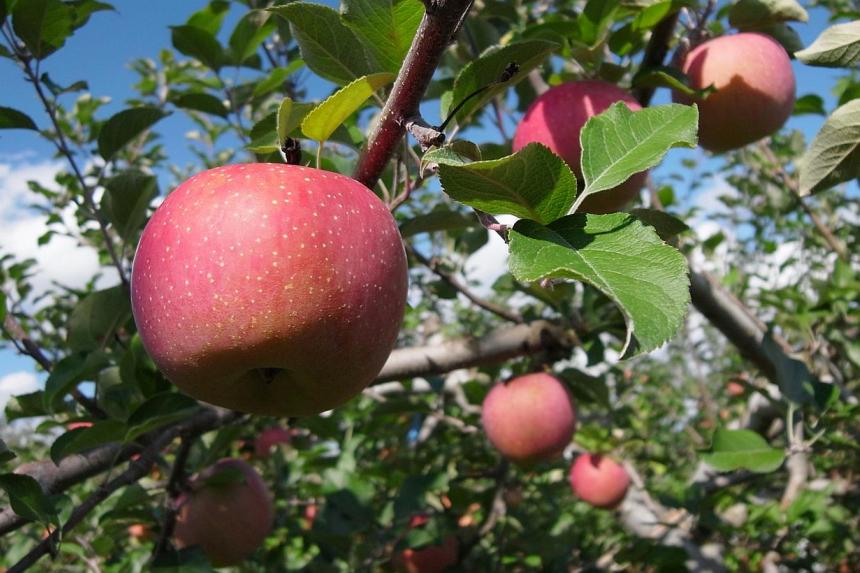The Fuji apple or fragrant pear in stores here may now cost up to 50 per cent more, as hot and dry weather in Asia drives up the price of fruit.
The overall prices of fresh fruit and fruit products have gone up by 8.4 per cent last month over the same month last year, the biggest hike out of all the food items measured by the Department of Statistics here.
For fresh fruit, it surveyed the prices of tropical fruits such as papayas, bananas, pineapples and coconuts as well as non-tropical ones like oranges, apples and pears, in its monthly consumer price index released on Monday.
Mr Yeo Cheng Ho, 54, owner of fruit importer and exporter Lai Hong Fruits, said the prices of certain fruits like Fuji apples and fragrant pears from China had gone up sharply.
For example, the wholesale price of an 8kg crate of fragrant pears was about $20 in May last year. It now costs about $30; the wholesale price of a crate of 125 Fuji apples doubled to about $40 last monthfrom a year before.
Mr Cedric Chew, 28, who runs fruit stores in Holland Village Market and The Grandstand Bukit Timah, raised the price of Fuji apples from 40 cents in May last year to 60 cents last month.
Mr Tan Chin Hian, vice-chairman of the Singapore Fruits and Vegetables Importers and Exporters Association, said bad weather was likely to have reduced the supply of fruits and led to price rises.
Malaysia went through a drought earlier this year, while Thailand has been having dry weather since last year.
Some parts of China have also seen dry spells this year.
Other factors that might have contributed to the price jump include the costs of freight and a shortage in supply for some fruits between seasons, said Mr Desmond Lee, director of fruit and vegetable supplier Fresh Direct.
He explained: "Weather patterns have changed. Sometimes there are supply gaps when the season in one country ends before another starts. This did not happen so much a decade ago.
"The weather has also shortened the shelf life of certain produce leading to higher wastage which means higher costs."
In Malaysia, labour costs might also have gone up as a result of a minimum wage policy which took effect on Jan 1.
Mrs Tan Khee Heng, 50, who runs a fruit shop in Tekka Centre, had to raise the prices of some items last month.
Coconuts at her store Chee Boon and Son Fruit Paradise are usually sold for between $1.60 and $1.80, but they are now sold at more than $2 each.
Papayas, which are usually sold at prices between $1.80 and $2 per kg, are now sold at prices between $2.20 and $2.50 per kg.
Said Mrs Tan in Mandarin: "When customers ask me about the increase, I have to explain to them that I am not raising prices for no reason.
"There has been an especially low supply of papayas recently. In the past, I always had them, but recently I have had to tell customers that I do not have stock."
Consumers interviewed said that they would change the fruits they buy given the price increases.
Housewife Khuen Ho, 60, said: "I still have to eat fruits but I will eat less of the expensive ones. I will buy fruits that my whole family likes so that it will be more worth it."
Despite price fluctuations, the quantity of imported fresh fruit and processed fruit products has gone up last month compared with May last year.
According to the Agri-Food and Veterinary Authority of Singapore, about 45,200 tonnes of fresh fruit and fruit products were imported last month, up 4 per cent from 43,300 tonnes in the same month last year.

